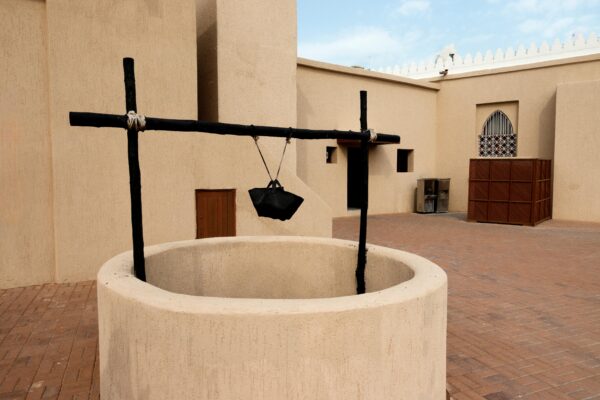
6 Wealth-Building Lessons from Khadijah (RA) Every Muslim Should Know
03 December 2025 8 min read


Khizar Mohammad
Community Lead
4 min read
Last updated on:
Are you breaking your back day in, day out to make your business a success, or to earn more money, but despite your best efforts it’s just not happening?
If this is you, the following reasons may be why.
In the materialistic society which we live in, we have become conditioned to focus on the physical, tangible things which affect our lives and we try are upmost to control them. However, we forget that there are hidden, metaphysical elements at play which affect us too.
A major Islamic element is Barakah, which refers to the blessings and increase in goodness from Allah. Just as certain actions and behaviours can increase barakah in our wealth and other parts of our lives, there are also actions which can reduce the barakah in our wealth.
In this article, we will outline five ways that can commonly lead to the loss in barakah in your wealth and your rizq being blocked.
The consumption of haram income or engaging in questionable transactions can diminish the barakah in our wealth.
As our Prophet ﷺ mentioned, a man having journeyed far, is dishevelled and dusty, and who spreads out his hands to the sky in Duʿā’, saying,
“O Lord! O Lord!”, while his food is Harām, his drink is Harām, his clothing is Harām, and he has been nourished with Harām, and regarding him, the Prophet said “so how can he expect his Duʿā’ to be answered? Notice, this man had all of the means of of what would’ve led to an accepted Du’a, such as he (1) is travelling, (2) is in a humbled state, (3) is raising his hands in Duʿa, (4) is repeating his Duʿa, and despite these elements combined, he was left unanswered.
So, correct your financial affairs and ensure that the wealth you’re spending is from halal and pure means.
Zakat is the obligatory charity that capable Muslims are required to give from their wealth annually to benefit the poor and needy. The word Zakat, in of itself means purification. It purifies our wealth from haram, and thus increases the abundance of barakah in the wealth we accumulate.
Neglecting to fulfil this duty can not only lead to a reduction in barakah, but actual punishment and torment in the hereafter.
Allah’s Messenger ﷺ said
“Whoever is made wealthy by Allah and does not pay the Zakat of his wealth, then on the Day of Resurrection his wealth will be made like a bald-headed poisonous male snake with two black spots over the eyes. The snake will encircle his neck and bite his cheeks and say, ‘I am your wealth, I am your treasure.’
Ensure you pay your zakat every year to avoid this gregious error. Our zakat calculator is a free to use tool on our Cur8 platform that will give you annual reminders, save your assets and make calculating zakat much more efficient. Check it out.
Participating in transactions where interest is charged or earned, is outright Haram in Islam and can lead to a decrease in barakah. Riba is a major sin mentioned in the Qur’an and Hadith, and there are very harsh penalties against it in the hereafter, so anyone desiring any barakah in their wealth should stay miles away from Riba.
Allah says in the Quran:
“whoever returns to [dealing in interest or usury] – those are the companions of the Fire; they will abide eternally therein” (Quran 2:275).
Go through your bank statements and ensure you’re not earning any interest from your money in the bank. If you are, give the bank a call and request to have no interest transferred going forward, they’ll usually oblige. Any interest you have gained, calculate it and donate that amount to charity in order to get rid of it.
To really be safe from riba, you need to understand what it is. Lucky for you, we’ve written an article on it to help.
Quite simply, Islam discourages excess expenditure, extravagance and wastefulness, all of which can reduce barakah in our wealth. Islam is a faith which instead encourages moderation and prohibits the squandering of wealth.
Of course, what constitutes excess differs from person to person. However, the point is if you are placing yourself in difficulty to afford something you don’t really need, then its definitely excessive and that will sap the barakah from your wealth.
Allah says in the Quran:
“But waste not by excess, for Allah loves not the wasters.” (Quran 7:31)
Look at your spending haabits and you’ll know if you fall in the bucket of excessiveness. To get to grips with this is to recondition ourselves to have a healthier relationship with money and manage our spending better.
Neglecting to fulfil financial responsibilities, such as paying debts or fulfilling promises regarding financial matters, can lead to a decrease in barakah. Not only does following through with your obligations and debts part of ones good character, but its also an essential part of bringing barakah in your wealth. If you don’t deal justly and fairly in your monetary dealings with others, why would Allah put barakah in your wealth?
Prophet Muhammad ﷺ said:
“The two parties involved in a transaction have the option to cancel it until they separate. So, if they are truthful and clear in their dealings, their transaction will be blessed, but if they lie and conceal something, the blessings of their transaction will be destroyed.” (Sunan Ibn Majah)
As a final note to the five reasons explained above, it is important to note that seeking forgiveness, repenting, and correcting our actions can help restore and increase the barakah in our wealth, so never forget that as long as you live no matter how bad you messed up, you always have a way to turn this around by turning to Allah and repenting.

03 December 2025 8 min read

26 November 2025 6 min read

13 August 2025 12 min read
Leave a Reply